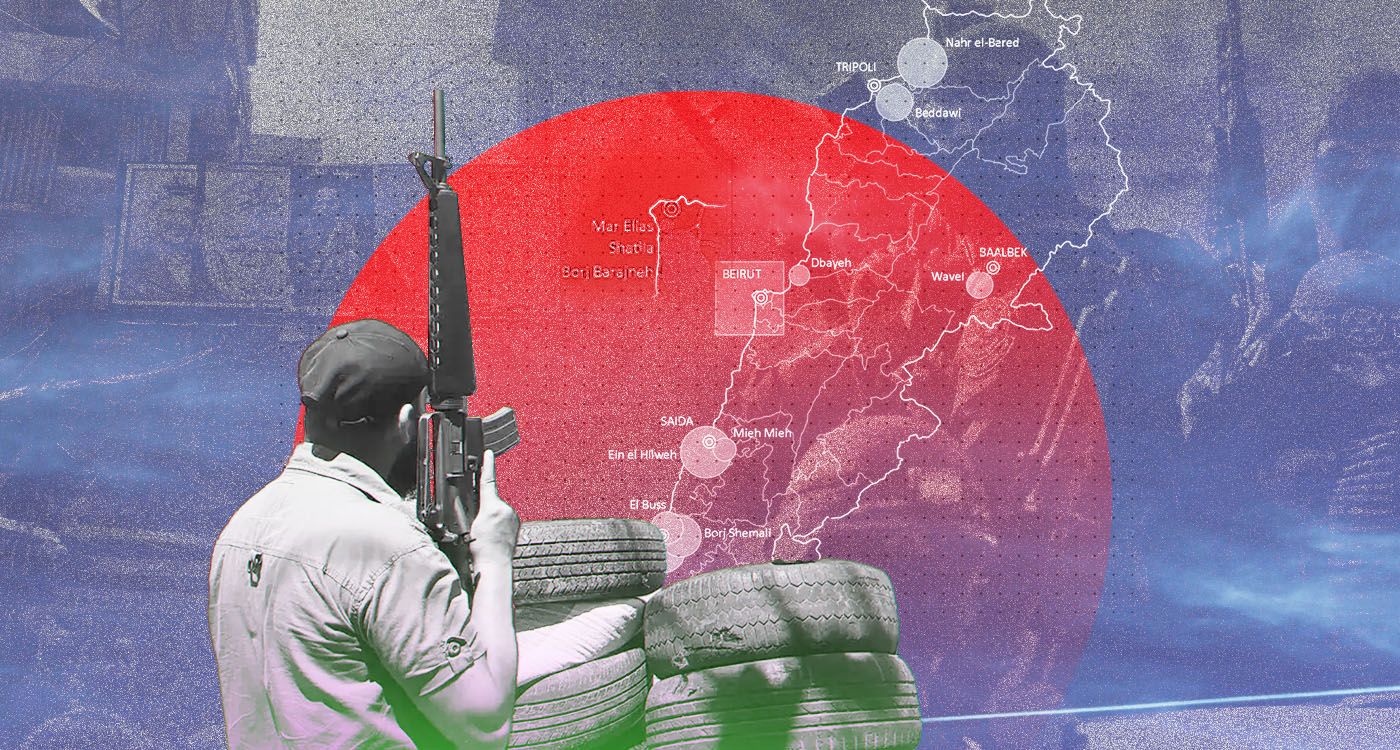
Lebanon has announced a plan to disarm Palestinian refugee camps, a step in the right direction. But disarmament is not enough. Lebanon needs a hard divorce from the Palestinians and their cause and should ask the UN to resettle 174,000 Palestinians, classified as refugees, in a third country.
The founding literature of the UN Relief and Works Agency (UNRWA), established in 1949 to resettle Palestinians who had exited Israel a year prior, suggests that this agency was conceived for a short-term purpose: permanently resettle these Arabs (at the time, the ethnonym Palestinian described both Arabs and Jews) in neighboring areas, such as Jordan, Syria, and the Sinai Peninsula. The agency invested in projects it hoped would enable the new Palestinian towns to become self-sustaining.
In no way was UNRWA designed to become a permanent Palestinian government, feeding Palestinians, employing them, funding their healthcare and education, and keeping a registry of their births and deaths.
But since Palestinians never assumed responsibility for their own governance, UNRWA was forced to become their de facto civil administration, with an open-ended mandate. In fact, Palestinians tied the continued existence of UNRWA to the very annihilation of Israel: The UN agency should continue to operate until these Palestinians relocate to lands that their ancestors had left 77 years ago.
No historical resettlement program has operated like that of UNRWA and the Palestinians. Throughout history, people have migrated — whether due to war or in pursuit of better opportunities — and once they established new lives elsewhere, few returned to their ancestral homelands. While the Zionist project is often framed as a return to ancestral land, it is unlikely that national fervor alone would have driven millions of Jews to migrate to Israel without the promise of viable living conditions and a stable future.
Over the past century, millions of people relocated due to war or in agreed-upon population swaps. Turkey and Greece exchanged millions, as did India and Pakistan. Yet none of these populations continue to live in hardship, holding out for a return to lands their ancestors once inhabited.
Along these lines, UNRWA must prioritize the resettlement of Palestinians in countries willing to integrate them and should revise its registry of 5.9 million individuals currently classified as refugees. In fact, only about one million of them remain stateless — that is, without any recognized national identity.
In Lebanon, UNRWA lists 400,000 Palestinians in its records. However, a 2017 survey revealed that only 174,000 Palestinians still reside in the country — a relatively modest population, one that wouldn’t fill two football stadiums. Like many Lebanese citizens, Palestinians have been emigrating from Lebanon in search of better opportunities abroad.
Beirut could therefore formally request that the UN resettle Lebanon’s 174,000 Palestinians in third countries. During the Syrian civil war, the UN resettled hundreds of thousands of Syrians, who had taken refuge in Lebanon, in countries across the world. The UN can do the same for Palestinians.
Advocating for the resettlement of Palestinians from Lebanon is neither unethical nor discriminatory. Lebanon has the sovereign right to decide whether it admits and naturalizes non-citizens. In the case of the Palestinians, there has been a national consensus for 77 years: they are not to be naturalized. As a result, what was intended as a temporary presence has turned into open-ended suffering.
To alleviate this shared burden, separation is in the best interest of both parties. Palestinians can be resettled across the globe — from Canada to New Zealand. Countries like Ireland and Spain, which have expressed strong support for the Palestinian cause, could offer to host some tens of thousands.
Such resettlement need not generate hostility.
Many in Lebanon today believe that immediate, unconditional peace with Israel aligns with the country’s national priorities. If Palestinians believe their future lies in continued resistance against Israel, that remains their choice — but it should be pursued elsewhere. The Lebanese can wish the Palestinians well in their endeavors, so long as those endeavors no longer burden Lebanon.
For 77 years, Lebanon has paid a steep price for a conflict that is not its own — arguably more than the Palestinians themselves. It is time, at last, for Lebanon to say: “We’re sorry — but it’s time for the Lebanese to move on.”




Comments